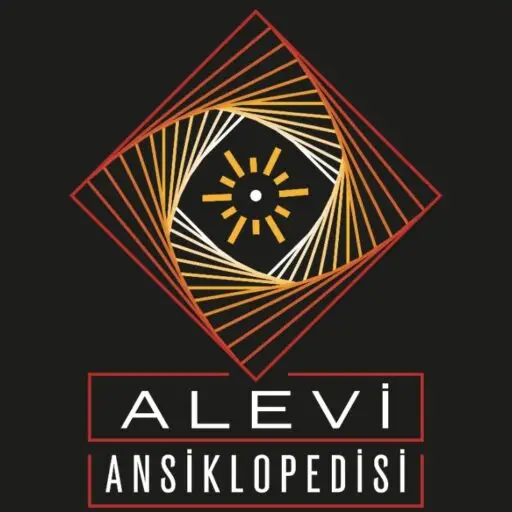The Speaking Qur'an (Kur'an-ı Natık) and the Alevis’ Relationship to the Qur'an
One of the frequently cited Alevi sayings is, “The bard’s utterance is the Qur’an’s essence (Âşığın sözü, Kur’an’ın özü).” Performed to the accompaniment of the Turkish lute (saz) and known under names such as deyiş, nefes, and ayet, Alevi and Bektashi poetry is regarded as a form of divine utterance. Alevi hymns are often held in equal or higher esteem than the Qur’an itself within their spiritual practices, due to the notion that they hold the Qur’an’s inner meaning.
Revelation and Inspiration
This perspective stems from the conviction that Alevis are God’s chosen people, the güruh-ı naci (the saved community mentioned in hadith), who have maintained the true path while the rest of the Islamic community has deviated. Consequently, the deyiş and nefes are attributed to divinely chosen individuals, the “friends of God” (Perfect Men, insan-ı kâmil), who have relinquished their personal will to operate through Allah’s agency. This understanding effectively blurs the distinction between divine revelation (vahiy) and spiritual inspiration (ilham). The Shiʿi concept of the Kur’an-ı natık (Speaking Qur’an), where it denotes the Imams, is thus reinterpreted within Alevi doctrine to establish a foundational principle for incorporating Alevi poetry into religious observance. Furthermore, the saz (Turkish lute) that accompanies poetic recitations during the cem ceremony is reverentially termed telli Kur’an (stringed Qur’an). The deyiş contain many references to Qur’anic verses, such as kalu bela (they said yes, 7:172) and nahnu kasemna (we have apportioned, 43:32). The Alevi-Bektashi interpretation of the Qur’an integrates elements from Shiʿi, Sufi, and Hurufi thought. While some poems highlight the unity of Muhammad and Ali, or that of the Twelve Imams, hymns and other poetic works frequently depict the deification of Ali. In these compositions, Ali is portrayed as embodying the Qur’an’s deeper, esoteric meaning.
Contemporary Alevism
Contemporary Alevis exhibit a diverse range of attitudes towards the Qur’an. It is important to note the prevalent belief in the Qur’an’s falsification among some Alevis, in addition to opinions opposing the Qur’an. On the other hand, even when the extant Qur’an is not revered in its entirety, specific Surahs and verses retain their sacred status and are incorporated into Alevi rituals, most often recited in Turkish. Among these, the Surat al-Fatiha and the Verse of Light (24:35) are the most common. This preference for Turkish reflects a profound emphasis on esoteric meaning, where the divine message itself is equated with its underlying significance. This leads to a perspective that once again dissolves the hierarchical difference between the Qur’an and the word of the saint.
Conclusion
The sacrality of Alevi hymns stems from the sacrality of the singer-poet (âşık) and their community, who hold the capacity to unveil, interpret, and embody the Qur’an’s inner meaning. The Alevi comprehension of the Qur’an thus illustrates a distinctively Alevi perspective on the interplay between the exoteric (zahir) and the esoteric (bâtın), where truth (hakikat) invariably resides in the esoteric, in the sırr (secret). The outward appearance of reality is frequently perceived as an obstacle, a veil that must be pierced.
Sufi, come and place faith in my utterance
For each of my words is like the word of the Lord
The Sublime One resembles me in every way
Behold-my face is as His face
(Edib Harabi, Edib Harâbî Dîvânı (Karşılaşmalı Metin), ed. Yıldız Balaban, Master’s Thesis, İstanbul Kültür Üniversitesi, 2017, p. 349)
Source:
“The Speaking Qur’an in Alevism: Poetry and the Word of God.” In Esotericism and the Qur’an / L’ésotérisme et le Coran, ed. Wissam Halawi and Bruce Fudge, forthcoming.
Noyan, Bedri. 2007. Kur’ân-ı Kerîm (Manzum Meâl). İstanbul: Ardıç Yayınları. İlk baskı 1997.
Oktay-Uslu, Zeynep. 2022. “Alevism as Islam: Rethinking Shahab Ahmed’s Conceptualization of Islam through Alevi Poetry.” British Journal of Middle Eastern Studies 49 (2): 305-326.
Öztoprak, Halil. 2006. Kur’an’da Hikmet, Tarihte Hakikat ve Kur’an’da Hikmet İncil’de Hakikat. İstanbul: Demos Yayınları. İlk baskı 1951-1952.
Vaktidolu (Adil Ali Atalay). 2019. Kur’an-ı Kerim: Manzum Meali ve Tefsir Özeti. İstanbul: Can Yayınları.
Wilson, M. Brett. 2014. Translating the Qur’an in an Age of Nationalism: Print Culture and Modern Islam in Turkey. Oxford: Oxford University Press.
Yüksel, Emine. 2022. “We Are the Descendants of Güruh-ı Naci: The Notion of Güruh-ı Naci in Alevism and Bektashism.” Journal of the Ottoman and Turkish Studies Association 9 (2): 307-330.

